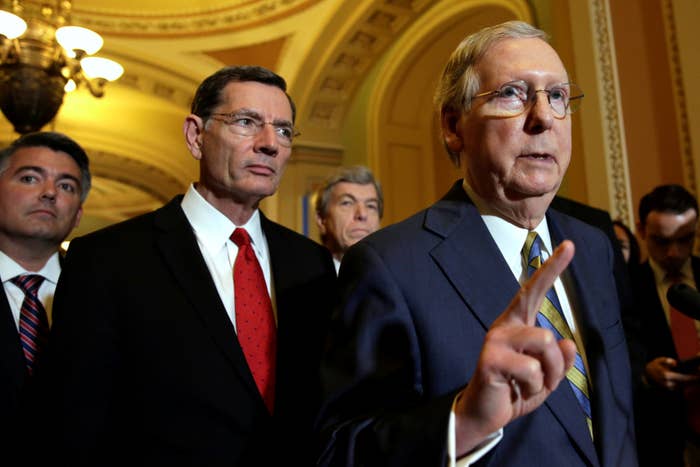
The Senate health bill would make people who allow their health insurance coverage to lapse wait six months before they are able to buy new insurance on the individual market.
The Senate’s health care bill was released on Thursday but notably lacked any mechanism to nudge people toward buying insurance. The new provision penalizing those who allow their insurance to lapse was added in an amendment released on Monday.
Under the amendment, starting on January 1, 2019, anyone who has not been continuously insured for a full year and wants to buy an insurance plan on the individual market must first wait six months. Anyone who goes at least 63 days without health insurance would be subject to this wait time. There are currently around 29 million people without health insurance.
This provision to encourage individuals to maintain insurance is far different than how the House bill proposed dealing with the issue. The House-passed health bill would punish lapses in coverage by letting insurance companies charge those people 30% higher premiums for six months on new plans. Obamacare used the individual mandate to level tax penalties on people who could afford insurance but did not buy it.
While the Senate amendment would incentivize people to stay insured, the obvious downside is that people who lack insurance and need medicine or other treatments could go months without them while they wait.
“The worst thing is when people start laughing at you and this is laughable,” said John McDonough, a professor at the Harvard University School of Public Health, who formerly advised the Obama administration on health care.
“People have lapses in coverage all the time. Mostly because they can’t afford it, they lose their job, they’re sick, they have to look after a relative. So now you’re creating this new inhumane barrier to coverage when they need it. It’s just a terrible idea.”
Senate Majority Leader Mitch McConnell’s office did not immediately respond to a request for comment.
If the Senate does pass the amended bill — which is not a sure thing — the Senate and House bills would need to be reconciled before being sent to the president’s desk. Five Republican senators have so far come out against the bill. Senate Republicans can only afford to lose two votes, but Senate Majority Whip John Cornyn insisted on Twitter on Monday that a planned vote this week will go ahead.
The American Medical Association also came out against the Senate bill on Monday, arguing it would violate the “do no harm” principle of the medical profession. In a letter to Senate leadership, the AMA objected to placing caps on Medicaid, which will cut hundreds of billions of dollars from the insurance program for the poor and disabled, and to letting insurance companies waive requirements that they must cover certain key services. A group of economists that includes six Nobel Prize winners also came out against the bill on Monday.
The Congressional Budget Office is set to release its score of the Senate bill this afternoon, which will include estimates of how many people will be insured under the bill compared to under Obamacare, as well as how premiums will be affected. It’s not clear whether the new amendment will be included in the analysis.

